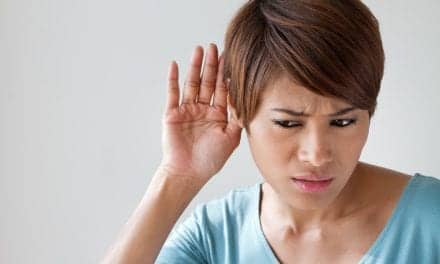Updated June 14, 2017
On June 7, the House Energy and Commerce Committee voted to advance the Medical Device User Fee Amendments (MDUFA) package, which includes the Over the Counter Hearing Aid Act (HR 1652). The bill was previously bundled with the MDUFA legislation and includes language that would mandate that FDA recommend OTC hearing aids for people with mild-to-moderate hearing loss. However, prior to its passage, David McKinley (R-WV) spoke passionately about the need to seek professional assistance before self-diagnosing hearing loss and the importance of hearing screenings.
Gary Shapiro, president and CEO of the Consumer Technology Association (CTA), was supportive of the OTC legislation. “We applaud Sens Chuck Grassley (R-IA), Elizabeth Warren (D-MA), Reps Marsha Blackburn (R-TN), and Joe Kennedy III (D-MA) for shepherding the OTC provision in the broader FDA user fee legislation,” said Shapiro in a press statement. “We are pleased that the provisions of the Over-the-Counter Hearing Aid Act are included in both the House and Senate versions of the FDA user fee legislation. Getting OTC hearing aids on the same shelf as OTC eyeglasses would be a major win for consumers with mild-to-moderate hearing loss. The high cost of hearing aids, the inconvenience, and the cost of doctor appointments means nearly half of online US adults—98 million Americans—have some degree of hearing loss and don’t get the hearing assistance they need. We urge expeditious consideration of these bills on the House and Senate floor.
“While both hearing aids and non-prescription devices can improve hearing, a pair of hearing aids can range in price from $1,000 to $6,000. Non-prescription devices such as PSAPs are one-tenth that cost, ranging from $100 to $600. According to the CTA’s Personal Sound Amplification Products: A Study of Consumer Attitudes and Behavior study, price is a significant barrier to seeking help for a hearing deficiency.
“The OTC provision will change lives for the better by directing the FDA to create a new regulatory class of hearing aids that could be sold over the counter. This new regulatory class will address the needs of adults with mild-to-moderate hearing loss, a population that desperately warrants attention.”
The bill has been at the center of much controversy in the hearing healthcare field. Recently, the Hearing Industries Association (HIA) expressed concerns regarding possible OTC regulations. Click here for more articles on the topic of OTC hearing devices.






People who think putting in a pair of hearing aids over the counter is the same as putting on reading glasses over the counter are sorely mistaken! Proper diagnosis of hearing loss should be left to professionals and not self-diagnosed. People will be misled just by chasing a lower price tag and ultimately suffer as the device may not fit them correctly as would a custom-fit device or be programmed to fit their needs/lifestyle, and they end up not using them.
Tens of thousands of people who have custom made hearing aids for which they paid thousands of dollars, do not wear them because they don’t perform as they should. Many technological devices are manufactured that are more complex than hearing aids and don’t cost what hearing aids do. The hearing aid industry has ripped off the consumer for long enough.
The OTC legislation would be workable for people who have a very mild hearing loss with a sloping configuration on their audiogram but anything greater than that can be more complicated. OTC eyeglasses are basically magnifiers meant for reading. But what about distance? What about astigmatism? A prescription for eyeglasses is needed to address those issues. Mild-moderate hearing loss presents similar issues. For instance, a hearing loss is not assumed to solely be a need for increased volume just because it is mild to moderate. There could be a loss in mid-ranges which increased volume does not address. Only professionally programmed hearing aids can resolve losses in those areas. It would seem a better way to address the high cost of hearing aids would be to look at other methods for lowering the price to the consumer. Our practice has had several consumers who ask us to make their mail order “hearing aids” better. Unfortunately, we cannot do this. This is a loss of $250.00+ to them. It is my fear that the same will be true with OTC hearing aids.